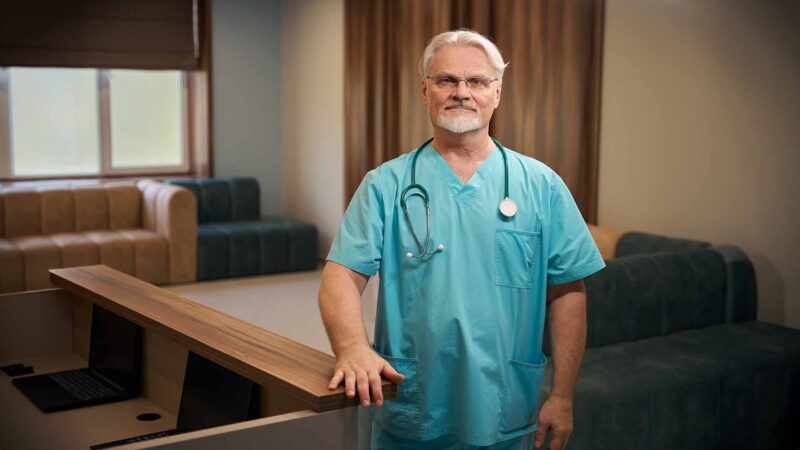Australian men with higher risk prostate cancer now have access to a nuclear medicine scan to help detect and treat metastatic disease, after it was listed on the Medical Benefits Schedule (MBS) from 1st July 2022.
In 2021 over 18,000 Australian men were diagnosed with prostate cancer, resulting in over 3,000 lives being lost – and making prostate cancer Australia’s second most common cause of cancer death in men.
Australia has led the world in the research and development of this scan using a relatively novel radiotracer, known as PSMA PET/CT. The availability of funding for PSMA PET/CT scans is a major win for patients, who until now have either paid for these tests themselves or found the scans unobtainable because of the cost. The Australasian Association of Nuclear Medicine Specialists (AANMS) welcomed the MBS funding which it says will help improve outcomes for thousands of men with a higher risk prostate cancer. “PSMA PET/CT imaging enables highly specific detection of tumour sites throughout the body with far greater sensitivity compared to other conventional scans. This enables doctors to make more accurate
diagnoses than is currently possible with other MBS-funded scans, and which in turn can be lifesaving for some patients,” said AANMS President, Associate Professor Sze Ting Lee.
The AANMS has worked closely with partners to achieve this important milestone in the diagnosis and treatment of prostate cancer.
“We would like to acknowledge the work of Dr Robert Ware from Cyclotek in generating the original funding application and their ongoing support in steering the application with AANMS during the tenure of my predecessor, Dr Geoff Schembri. We also extend our thanks to all those who supported the application, including AstraZeneca who sponsored the submission,” Associate Professor Lee said.
With funding now available, AANMS will work closely with other key stakeholders to ensure that patients are appropriately referred for these tests.
Australian Health Journal spoke with Associate Professor Lee and Dr Geoff Schembri on the MBS listing and the efforts to get it listed.
About AANMS
The AANMS is a peak body representing medical practitioners working in the field of nuclear medicine diagnosis and therapy. It works to promote and advance the clinical practice of nuclear medicine, which can be used to both diagnose and treat patients with a range of health conditions including the leading causes of death in Australia; cancer, dementia, heart and lung diseases; as well as renal, endocrine and paediatric disorders. Together with government and other stakeholders, AANMS is working to build a strong and sustainable nuclear medicine sector in Australia in order to optimise health outcomes for Australia patients.
You Might also like
-
State of private healthcare in Australia
Australia’s healthcare system is often described as a mixed system, with a combination of public and private providers. While public healthcare through Medicare provides universal coverage for essential services, private healthcare offers additional options and amenities for those who can afford them.
Private Healthcare Australia (PHA) is the Australian private health insurance industry’s peak representative body that currently has 21registered health funds throughout Australia and collectively represents 98% of people covered by private health insurance. PHA member funds today provide healthcare benefits for over 14 million Australians.
-
New treatment options under investigation for pelvic organ prolapse
Dr Shayanti Mukherjee, Research Group Head, Translational Tissue Engineering at the with her team at Hudson Institute of Medical Research is developing new ways to prevent and potential cure pelvic organ prolapse (POP). The technology aims to ultimately lead to safer and more effective treatment for women with pelvic organ prolapse (POP) using a woman’s own stem cells to boost the effectiveness of a degradable mesh.
-
State of Private Hospitals sector in Australia
During Mr Roff’s working career at APHA he has represented the private hospitals sector to nine different Federal Health Ministers and eight Prime Ministers. He believes the government should take steps to regulate the health insurance industry to protect consumers and ensure that Australians have access to affordable and comprehensive healthcare services.



